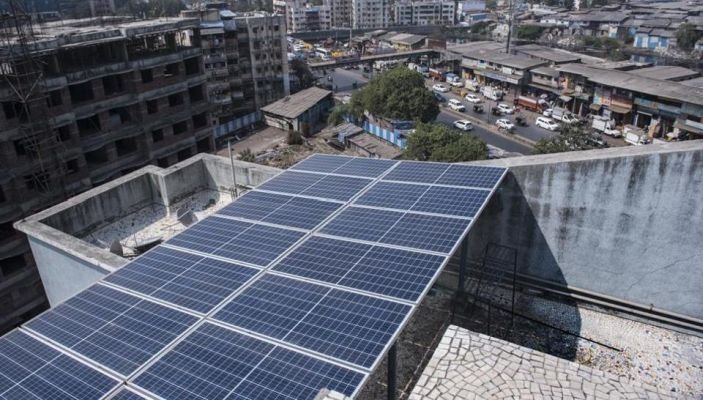Twin Star Cooperative Housing Society in Rupa Nagar, Kurla (West), Mumbai, with 56 flats, has installed a 20 kilowatt (kW) rooftop solar power generation system with 60 panels that generate 76 kilowatt-hour (kWh) electricity per day and is expected to generate 28,000 kWh annually. A two-bedroom apartment in Mumbai uses 10-12 kWh electricity per day.
The system, installed in the first week of December, helps the society save Rs26,000 per month in electricity expenses. Their electricity bill before the installation was Rs31,000 and it has now dropped to around Rs5,000, said residents. The plant generates 90% of the energy needed to light up the common areas, parking spaces and operates the lifts and water pumps.
According to the solar rooftop carbon calculator by the Ministry of New and Renewable Energy (MNRE), a 20 kWh system can prevent more than 615 tonnes of carbon emissions over 10 years. It will require 984 teak trees to capture this amount of carbon released by conventional sources of electricity like coal or oil.
The solar grid cost Kurla residents Rs14 lakh, but they expect to recover the expenses over the next four-and-half years.
Net-metering system was also installed with the solar setup, which allows surplus power generated to be exported back to the grid and any deficiency to be imported. At the end of a financial year, the society will be charged by the power supplier only for the ‘net usage’.






